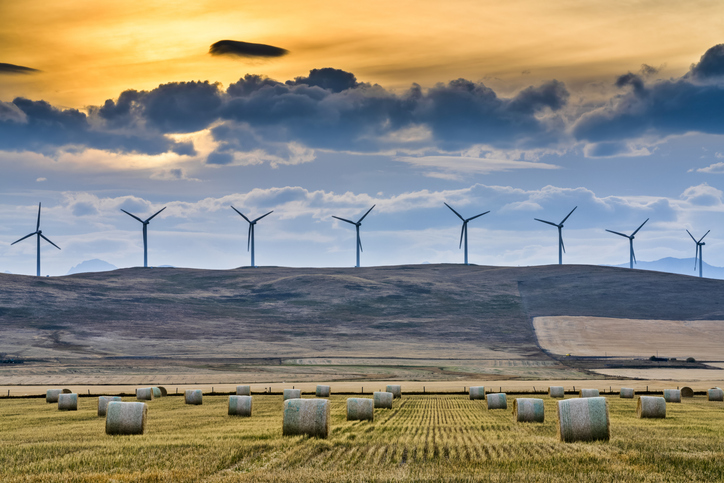Sunday, July 6, 2025
Prime Minister Justin Trudeau’s Liberal Party of Canada won a minority government last night with 157 seats to the Conservative Party of Canada’s 121 seats. He will now have to work with other parties to address the tasks of his second mandate. What are his plans – and challenges – on key environmental issues?
Depending on who you talk to, Trudeau is a staunch environmentalist or he’s the PM who buys more pipelines. Either way the environment was top of mind for voters this election and they opted to vote in favour of a leader who made climate change action a top priority. However, the minority government situation and a new cast of characters in the House of Commons will mean a balancing act on environmental initiatives moving forward.
In his first term, Trudeau could pass legislation without a lot of concern about the opposition parties rejecting it. In his second term, he will need to to cooperate with other parties to prevent that from happening. During this election surveys showed that the environment and especially climate change was consistently one of the top three issues for voters. In his acceptance speech last night Trudeau mentioned climate change on a few occasions.
“Friends, you are sending us to Ottawa with a clear mandate. Continue to go forward and to move this country forward. You asked us to invest in Canadians, to make reconciliation with the Indigenous peoples a priority. To show even greater vision and ambition as we tackle the greatest challenge of our times—climate change,” said Trudeau. “And that is exactly what we will do. We know that there is a lot of work still to be done. But I swear to you that we will continue what we have begun.”
The Liberals, Green Party and New Democratic Party of Canada (NDP) all campaigned to cut Canada’s emissions and act on climate change in line with what international scientists are advocating in order to prevent a climate crisis. Conversely, the Conservatives campaigned on a promise to cut the carbon tax, stop the implementation of tougher emissions standards on fuels, and dismantle legislation that overhauled the environmental assessment of major national projects like pipelines.
According to Catherine Abreu, executive director of the Climate Action Network Canada, voters opted to support climate change action. “With at least 63% of voters casting ballots for parties that put forward strong climate platforms, it is clear that a majority of Canadians asked for more ambitious and urgent climate action,” says Abreu. “At the same time, voters did not have enough confidence in the Liberal climate record to hand them another majority. Voters have put the NDP and Greens in a position of power to make sure the Government of Canada amps up action on climate change, now.”
Liberals have pledged to increase the price they introduced on greenhouse gas emissions to $50 a tonne by 2022 from $20 now (which the Conservatives oppose), but also to support the Trans Mountain pipeline expansion (which the NDP and Greens oppose). Experts predict that the carbon tax is safe for now with the NDP, Greens and Bloc supporting it, but that the Liberals may need to find ways to make their climate plan more assertive to keep those parties satisfied.
The election results indicate that the national price on pollution will be maintained, as will Bill C-69, the Impact Assessment Act to strengthen environmental assessment legislation. Other parts of the Liberal climate policy include a clean-fuel standard, incentives for electric vehicles, regulations to curb methane emissions from the oil and gas sector and carbon emission reductions through natural initiatives. The natural initiatives will include the planting of two billion new trees, one of the best methods to keep carbon emissions from ending up in the atmosphere. He estimates this project will create about 3,500 seasonal jobs and will help get Canada almost 40 per cent closer to emissions reduction targets.
There may be impacts to major energy projects like LNG Canada and the $4.5 billion Trans Mountain pipeline are less certain. Tim McMillan, president and chief executive officer of the Canadian Association of Petroleum Producers (CAPP), said he congratulates the Liberals and agrees with the importance of working toward a sustainable environment and economy.
“The Canadian Association of Petroleum Producers congratulates Prime Minister Justin Trudeau and the Liberal Party on securing a minority government,” he said. “We all agree on the importance of making life affordable for Canadians, enabling results on climate change, and creating prosperity for all. CAPP is committed to working with the federal government. A strong oil and natural gas industry can contribute to the government’s mandate and benefit all Canadians by providing affordable energy, prosperity, and creating opportunities for Indigenous communities.”
So while no party can seem to guarantee blue skies ahead it seems the election results are promising for climate change action, other key environmental issues and the economy of the environment sector.
https://2019.liberal.ca/our-platform/a-price-on-pollution-and-a-real-climate-plan/











